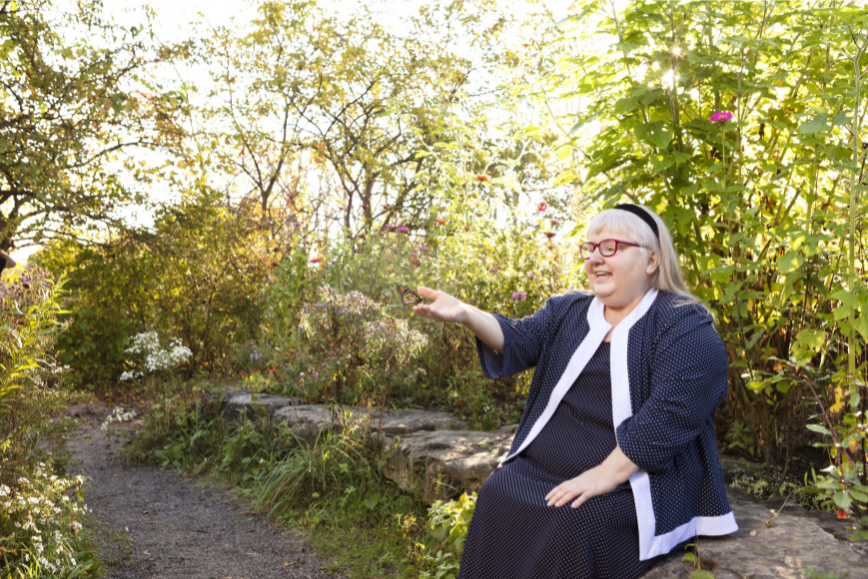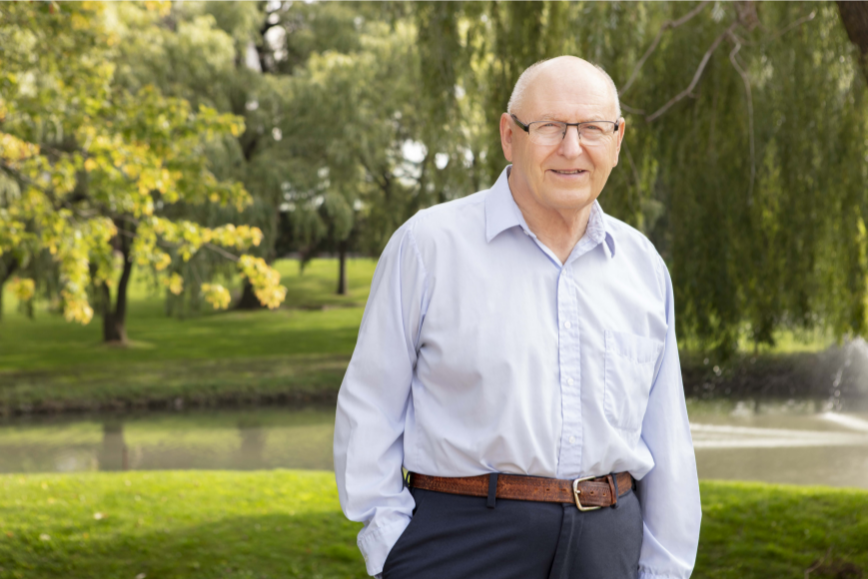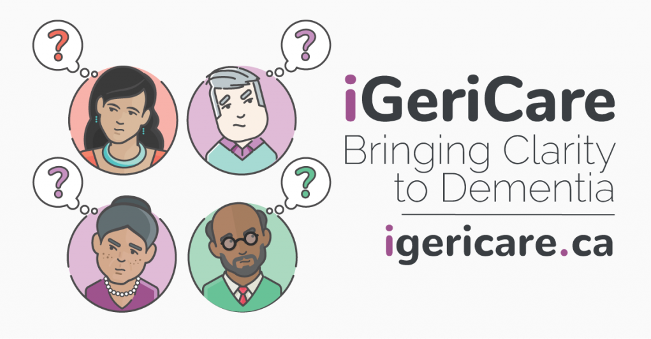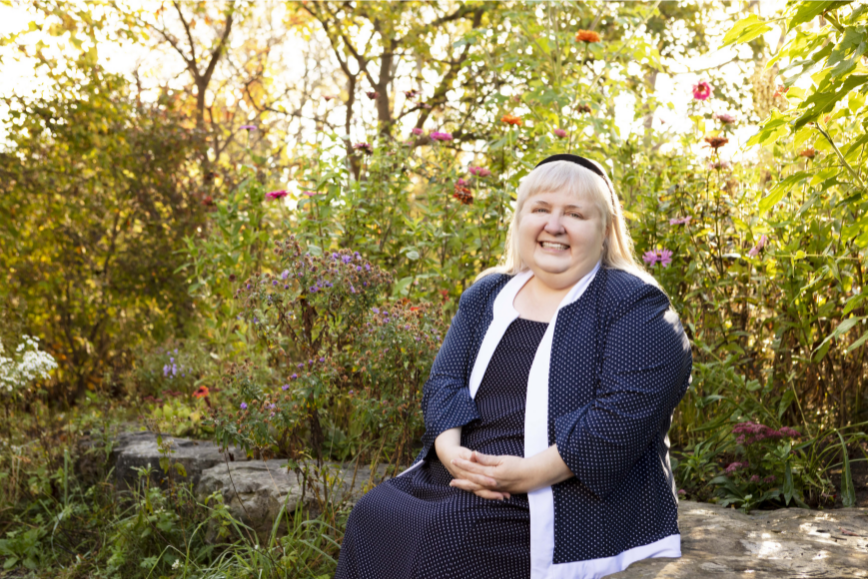Click here to download a PDF copy of our newsletter.

We Need A “hEARt”
By: Debbie Keay
Prior to diagnosis, my relationships began to change. I have always been prepared to lend a hand for whoever and whatever. As symptoms of my dementia were exposed, (unbeknownst to me) by a lack of initiation and motivation, I became less available to help. Adjusting to dementia, I found myself selective with my circle of friends and am still in that process. I need to have people around me who I trust, who were not just ‘fair weather friends’, and who treat my ‘hEARt’ as their own.
It took me some time to feel safe and secure to share my diagnosis. Sharing was difficult, but what happens when/if I am no longer able to communicate my thoughts and feelings? What will I need? It’s simple, I will still need a ‘hEARt’.
Some healthcare professionals identify 7 stages of dementia. Hopefully, I will be able to help others by sharing my dementia journey through these stages and what has/will help me in each of them.
- Stage 1: The brain has a mind of its own. I was experiencing changes, but no one knew, including me. The changes were unseen and unfelt.
- Stage 2: I began to forget things, such as PIN numbers and what people said. I lost my debit card and had the occasional stove fire (well, maybe more than occasional). I questioned normal aging or dementia, recognizing the signs due to seven family members having dementia. I found ways to work through my challenges and hide as much as I could. Not a good idea. I had support from friends at work who thought I was working too much and too hard. I had their hands and feet, and they had my ‘hEARt’.
- Stage 3: Things that I thought I was able to hide, could no longer be hidden. Forgetting to pick up and take medications, I began to develop serious health issues. I could not adjust to new tasks. My mobility was affected, requiring a walker and my vision warranted monthly eye injections to prevent blindness. Co-workers were concerned and management urged me to seek medical help. I did. Diagnosed with early-onset Alzheimer’s, it was suggested I get my affairs in order. My sister patiently helped me adjust to my circumstances. She checked in on me all the time, called me every day, sometimes twice a day. Overprotective!!! It drove me nuts. Reassuring her was necessary. “I’m okay, let’s touch base every other day.” I had my sister placed on my finances. An insurance policy was terminated because paperwork got lost and was one year past due when I found it. Reading this will be the first time my sister has heard of this little incident. She is there for me, but she listens and gives me space. She not only has my back, but she also has my ‘hEARt’.
- Stage 4: I am able to make my own decisions, but it is nice to have others to count on. It is good to have someone who knows me and can see the progression of my dementia. My sister and I spoke about my “do not resuscitate” orders, “allow natural death”, and “MAID” (medical assistance in death). She never tried to intervene or tell me what to do. I had full autonomy. My brain can feel totally discombobulated and I need help with paperwork. P.S. I have four years of filing to do. Things that help me now are offering me rides, picking up a carton of milk, mailing a letter for me, or simply calling me. Please remember that a person with dementia is challenged daily and trying to live as normal a life as they can. We might not have the wherewithal to contact you, but we still need you. We need someone who understands, offers encouragement and is there without having to be asked. We need a ’hEARt’.
- Stage 5 & 6: I am managing and living as well as I can with a wonderful peace. Experiencing profound changes, I have withdrawn from two projects I was a part of. I sometimes flip the switch on my typical optimism and become a little pessimistic. Uh-oh, here come the personality changes. Not wanting to use my dementia as an excuse, it is important for me to accept what I am going through and be honest with others around me. This way they might be more understanding of silences, venting, repeating stories, forgetting conversations, or having memory issues. I have no concept of date and time. My sleep patterns are off the charts. As an aside, I have also worn diapers for two years; I share this because there are many things that a person with dementia must adapt to. I know you also adapt to us, but I will need you more and more and may not be able to reciprocate back. Please don’t forget about me. What makes me feel good and loved, are the little things you do for me: telephone calls, dropping off something you made because I have an interest (e.g., birdhouses). Maybe you bring a meal or invite me on a picnic, working around my needs. Perhaps you help clean my tub or go through my refrigerator to throw out outdated food stuffs. When you visit, it’s okay to laugh. Humour is my second name. Thank you for going the second mile for me. It doesn’t go unnoticed. As much as you have my ‘hEARt’. I have yours too.
- Stage 7: Though not in this stage, my sisters and I have watched many family members who have died due to dementia; we know the end stage well. The stereotype portrays the invalid person sitting in a chair, no visitors (why bother they don’t recognize you anyway). How wrong is anyone who thinks this? A person may be trapped in their body, not able to communicate or acknowledge you. Do you know that they don’t know you are there?
Don’t disappoint them, me in the future. Talk to me as if I knew you were there. I want to hear about your relationships, grandkids, school, work, picnics, vacations, and pets. Hold my hands. I might stare into space, but don’t let yourself think that your visit doesn’t count. Brush my hair, tell me how special I am. Please remember that when you do, you show me your ‘hEARt’.
My spirit knows you are here. My heart beats, my lungs breathe, my brain …. do you know what is really left? My sisters and I can’t ask my aunt to come into our world and understand what we know, but we can go into her world because it is about her, not us, at this point in her life.
About the Author: Debra Anne “Debbie” Keay was diagnosed with early onset Alzheimer’s in 2018 at the age of 58. She uses her experience to advocate for community inclusion. Diane Keay is Debbie’s sister. Debbie has described Diane as an angel who has helped her through her toughest times.
My Approach to my Sister’s Dementia Journey
An Interview with Diane Keay
Please describe Debbie in 5 words.
Vivacious. Caring. Generous. Outgoing. Quiet.
How did you learn of Debbie’s dementia diagnosis?
Our mom died of a massive heart attack. It was around this time that I saw changes in Debbie. I originally thought this might be caused by grief or depression and everything we were dealing with as a family. We would get through this together and were there to support each other. When things didn’t get better, I began to think there might be more going on.
Were you surprised by Debbie’s diagnosis of early onset Alzheimer’s disease?
I knew something was awry and was prepared. We also have many family members who have lived with dementia, so I have seen and learned a lot from these experiences.
Please describe your relationship with Debbie.
Very close. She is there for me. I am there for her. We depend on each other.
Do you have any advice for families to help their family member on their dementia journey?
Patience. Don’t correct them. Listen. Go with the flow. Be there for them.
What has been your biggest challenge in helping Debbie to navigate her dementia experience?
Knowing what and how to help. Debbie has always been a very giving, caring and independent person. It can be hard to navigate when/if/how to help while supporting her freedom to be as independent as she wants to be.
What has helped?
Our experiences with other family members with dementia have inadvertently helped us prepare for this. Debbie knows what she wants and what she doesn’t want. She moved into a 2-bedroom apartment, very close to me, which is perfect. She has prepared and included me in her plans/desires for the future, all of which I fully support.
What message do you want to share with other families who want to help their family member LIVE with dementia?
Friends and family need to have patience, understanding and adapt to the new life a person with dementia is living.

4 Principles to Help You Accept Your Diagnosis
By: Douglas Schweyer
I am often asked how I can be so open about the condition that I have been diagnosed with which is Alzheimer’s. I reply that as with everything in my life, I have found the best way to deal with any subject – particularly, one that seems difficult is to be as honest as you can.
From the beginning, while I was surprised when I was diagnosed with Alzheimer’s, I knew that I had some of the symptoms that the doctor described. This helped me to recognize and accept my diagnosis almost immediately. In this article I will share with you four principles that have helped me to accept my diagnosis and live as well as I can with Alzheimer’s.
One. You must be honest with yourself. You need to recognize the fact that the doctor knows what she is talking about. You indeed have Alzheimer’s. What you do next is for you to decide. If you believe that you can continue to hide your diagnosis, that is your choice. If you realize that in fact others may have encouraged you to go to the doctor because they expected this result, it is now your job to recognize that this is your condition. While it is not easy, an essential first step you need to face is to accept your diagnosis and admit “I have Alzheimer’s.”
Two. The second is just as important – that you share your diagnosis with your partner and or your family and close friends. You might find that those close to you are in fact somewhat relieved that you recognize what you have. Probably for some time they have been expecting it because you haven’t been acting exactly as you had been before. Before my diagnosis, my wife and children noticed that I was dragging my feet and not being quite as cheerful as normal. They thought something must be wrong, but they didn’t really know what or how to address this. In sharing my diagnosis, it became easier to talk about and make some decisions. Knowing that what I had was Alzheimer’s, I could now discover what this meant. This included sharing what I was going through and having something concrete that I knew I needed to find out more about, and so this leads us to the third point.
Three. Joyce and I began to explore what the Alzheimer Society had to offer in the way of, both in terms of understanding Alzheimer’s and how we might act toward it. Together, we attended several courses with a few others, mostly couples also experiencing education dementia. We began to discover that there is no single way to describe how others are affected by or live with Alzheimer’s/dementia. One thing that became clear was that the more you talked about it, the better you felt about it and perhaps even made others feel better.
We recognized that socializing helped us to understand, process and cope with what we were going through. We learned that staying active physically and mentally is also very important. So, staying as active as you can from playing sports to finding other activities you enjoy will help you. Keeping your brain active is another way you can help yourself: read- it doesn’t matter what, join a group to play cards or another activity, learn something new and keep your brain as active as possible. No one knows what symptoms you may develop or the length of your journey, but when you participate with others, it will help them realize that they can also be helpful to you, and you will hopefully be reminded how much you still help others.
Don’t withdraw from life. Staying active physically mentally and spiritually is good therapy and that leads to the next point.
Four. The more people who recognize that there is something they can do about their condition, researchers will begin to better understand therapies and other things that can help, such as prescription drugs, or exercise and the other things mentioned. We should take heart in recognizing that some diseases of the past have been almost totally conquered by research and people continuing to study and discover new therapies and cures. Surely, we can also take heart in what we have lived through in the last two or three years, what we call COVID-19 has at least in some part begun to be controlled by the drugs that have been developed. Or we can take heart in the improvements in therapies now available to
treat cancer. With more research and understanding, someday Alzheimer’s may not be entirely a thing of the past, but it will be more treatable and more recognized. I believe that Alzheimer’s will be something that not always ends in despair, but rather in hope.
In the meantime, keep in mind the four principles spelled out here to remind yourself every day that you are not alone. Keep active in mind, body, and spirit. Researchers are working diligently to find new hope every day.
About the Author: J Douglas Schweyer is a retired pastor of the Evangelical Lutheran Church in Canada, now a member of Trinity Lutheran Church in Hamilton. Recently, Doug and his wife of 60 years Joyce moved from their longtime home of Hamilton to Luther Village, Waterloo.
SHOW & TELL
A new feature to spotlight a resource we recommend!

The IGeriCare Patient and Caregiver Portal was developed by Hamilton-based physicians Dr. Richard Sztramko, Geriatrician, and Dr. Anthony Levinson, Neuropsychiatrist. The portal provides easy, free access to simple lessons and helpful resources for patients and caregivers to learn about dementia. Visit www.iGeriCare.ca to learn more!

Dementia Friends is proud to share the launch of the Faces of Dementia, a campaign featuring the stories and wisdom of our team members and others who live with dementia! Visit www.facesofdementia.ca to learn more about the project.
Free Certificate Workshop
Join us for a free 1-hour workshop. Learn how we can work together to create dementia-friendly communities! Register at www.facesofdementia.ca or contact Wendy to schedule your free workshop for your group/organization!
Tip of the Day
Doing Things Differently with Dementia Friends
When Doug shared that he was having difficulty using his keyboard to type his newsletter article, Phyllis gave him a tip to try writing by dictating using the “Dictate Text” feature on his iPad. Doug Did!
A dictation application – version of “Dictate Text” is accessible on most electronic devices. Give it a try!
For information about community programs near you to learn more about technology, visit www.211.ca or call 211 from your phone.
How is Dementia Diagnosed?
By: Phyllis Fehr
To diagnose dementia, doctors conduct tests to assess memory, thinking skills, functional abilities, and behavior changes. They also perform tests to rule out other possible causes of symptoms. An accurate diagnosis of dementia along with the type of dementia is an important first step to navigate appropriate treatment options and have the knowledge to plan for your future. Visit www.FacesofDementia.ca to read about the importance of early diagnosis and types of dementia in my last article: “What does my Diagnosis Mean.”
Who can diagnose dementia? Your family doctor, a doctor trained in brain conditions (neurologist), or a doctor trained to treat older adults (geriatrician) are all qualified to provide an assessment and diagnose dementia.
What information are doctors looking for? Your doctor will review your medical history, medication history and symptoms. They will also conduct several tests to determine:
- Are there changes in your memory or thinking?
- Are there changes in your personality or behaviours?
- What degree of change are you experiencing and how?
- How do these changes affect your ability to function in daily life?
- What is the cause of your symptoms?
What types of tests might I be asked to take? Your doctor may provide all or any combination of the following tests to thoroughly assess and diagnose your condition. Tests help determine if you have dementia and if you can safely conduct tasks such as driving and managing your finances. They also help to rule out if something else might be the cause of your symptoms.
Physical Assessment: Your doctor will perform a physical evaluation and check that you don’t have other health conditions that could be causing or contributing to your symptoms, such as past strokes, Parkinson’s disease, or depression.
Memory Testing: Your doctor may ask you to answer questions or perform tasks associated with your cognitive skills, such as your memory, abstract thinking, problem-solving, and language.
Mental Status Testing: Your doctor may administer specific tests to assess your thinking (cognitive) and memory decline.
Neuropsychological tests: You may be evaluated by a specialist trained in brain (neuropsychologist) to further evaluate your memory and thinking.
Interviews with friends and family: As doctors don’t see you each day, they may ask those who do questions about you. Your doctor is looking for details about how your thinking, abilities and behaviours may have changed over time.
Brain-imaging tests: Alzheimer’s results from the progressive loss (degeneration) of brain cells. This degeneration may show up in a variety of ways in brain scans. Brain-imaging technologies most often used are: Magnetic resonance imaging (MRI), Computerized tomography (CT scan), and Positron emission tomography (PET scan).
Laboratory tests: You may have laboratory tests to rule out other disorders such as a thyroid disorder or vitamin B-12 deficiency.
Reminder: Getting an early and accurate diagnosis can help you, your family and care partners understand what you are going through. This will ultimately help you address and treat your condition to continue to live as well as you can.
About the Author: Phyllis Fehr is a wife, mother, grandmother, and great grandmother to a blended family. Her career was as a Registered Nurse in Intensive Care and Cardiac settings, and a sexual assault nurse examiner. Since being diagnosed with Alzheimer’s disease, Phyllis has become an advocate for people living with dementia.
Train Your Brain: Stroop Test
Try to say the colours you see rather than the colour names!

Never stop learning! Evidence suggests that by trying things differently and continually learning, your brain is challenged to create new pathways to think, adapt and create. Do things that you enjoy keeping active in mind, body, and spirit to optimize your brain health!
We Want to Hear from You!
Dementia Friends in Our Community – Hamilton is seeking new members! If you live with dementia in Hamilton, ON and would like to join our team or contribute to our newsletter, please contact Shelagh at [email protected] or 905-920-7721.
To learn more, visit www.facesofdementia.ca

